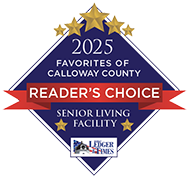Caring for a loved one with memory-related challenges can be an emotional and overwhelming task. Conditions like Alzheimer’s and other forms of dementia often require a level of specialized care that goes beyond what most families can provide at home. That’s where memory care options can make all the difference.
Designed specifically for individuals with memory impairments, memory care combines professional support, safe environments, and thoughtfully curated activities to enhance quality of life. Whether you’re at a crossroads about the care your loved one needs or just exploring your options, memory care offers many key services to benefit your loved one.
What is Memory Care?
Memory care is a specialized form of senior living tailored to meet the unique needs of individuals with Alzheimer’s, dementia, or similar memory-related conditions. Unlike traditional assisted living, which focuses on general daily assistance, memory care places emphasis on safety, cognitive stimulation, and structured support.
Care in a memory care community is holistic, addressing not just physical needs but also mental and emotional well-being. It’s designed to help residents thrive despite their challenges, offering a nurturing environment where they feel safe, supported, and part of a community.
Key Services Offered by Memory Care Communities
Memory care communities provide a wide range of tailored services, each carefully designed to foster dignity, independence, and a sense of belonging. Here’s a closer look at the services they typically offer:
Personalized Care Plans
One size never fits all, especially when it comes to memory care. Every person’s experience with memory loss is different, requiring individualized attention. Memory care communities develop personalized care plans based on each resident’s unique medical history, personality, and preferences. These plans might consider their favorite daily routines, dietary needs, or even their preferred leisure activities to ensure care feels familiar and comforting.
Safe & Supportive Environment
Ensuring safety is one of the hallmarks of memory care. Communities are thoughtfully designed to minimize confusion and reduce the risks associated with memory impairments. Features like circular walking paths, secure outdoor spaces, and visual cues (e.g., color-coded signage) help residents feel secure while maintaining some independence. Personalized living spaces and calming lighting also create a comforting atmosphere, helping residents feel at home.
24/7 Supervision & Assistance
Memory impairments increase vulnerability to accidents and confusion, which is why memory care communities provide round-the-clock supervision. Highly trained caregivers are always available to assist with emergencies or provide reassurance. Whether it’s a calming presence during nighttime agitation or helping with a midnight bathroom visit, this constant support brings peace of mind for families and enhances the resident’s comfort.
Cognitive & Recreational Activities
Cognitive decline doesn’t mean giving up on an enriching life. Memory care communities use structured activities to stimulate memory, encourage engagement, and create joyful moments. Some popular offerings include:
- Reminiscence Therapy using photos or music to rekindle cherished memories.
- Art and Music Therapy to improve mood and reduce stress.
- Gentle Physical Activities like yoga or guided stretching to maintain mobility and improve overall well-being.
- Social Gatherings such as trivia games, group storytelling, or movie nights to foster connections.
These activities serve both therapeutic purposes and recreational enjoyment, helping residents maintain a sense of purpose and community.
Comprehensive Medication Management
Managing medication schedules can be daunting, especially when dealing with cognitive challenges. Expert caregivers in memory care communities take charge of this responsibility, ensuring residents receive their prescriptions on time and monitoring for potential side effects. This not only eliminates worries about missed doses but also safeguards residents’ health.
Support for Daily Living Activities
Daily living tasks like dressing, grooming, and eating can feel overwhelming for someone with dementia. Memory care staff are trained to offer assistance with these activities while maintaining the resident’s dignity and promoting independence wherever possible. Staff often encourage residents to participate actively in their routines, fostering a sense of purpose while providing any necessary support.
Nutritious Meals & Dining Assistance

Proper nutrition is vital for maintaining cognitive health. Memory care communities prioritize wholesome, balanced meal plans tailored to individual dietary needs. Dining is often a communal experience, fostering social connections, and staff provide any necessary dining assistance, from guiding utensil use to full feeding support when required.
Regular Assessments & Adaptive Care
Cognitive conditions such as Alzheimer’s often progress over time, and care strategies must evolve alongside them. Memory care staff conduct regular assessments to monitor physical, psychological, and cognitive changes. Care plans are then adjusted to meet changing needs, ensuring consistent well-being and quality of life.
Transportation & Outings
Staying connected to the world outside the community boosts emotional resilience and well-being. Many memory care facilities arrange transportation and meticulously planned outings, whether it’s a visit to a favorite local spot, a doctor’s appointment, or a day trip to a park or museum. These outings are designed for fun, safety, and accessibility, enabling residents to enjoy new experiences.
Why Memory Care Could Be the Right Path for Your Loved One
Choosing memory care is often about bridging the gap between safety, structured care, and emotional fulfillment. For many families, it’s not just about ensuring 24/7 support but also giving their loved one opportunities to experience joy, connection, and dignity in everyday life.
Memory care communities empower their residents to maintain a strong sense of self and purpose while offering families peace of mind that their loved one is receiving expert, compassionate care. From cognitive therapies to safe environments, memory care is designed to meet the complex needs of individuals with memory challenges.
Explore Compassionate Memory Care Today
Navigating memory-related conditions can be incredibly challenging, but you don’t have to do it alone. Memory care communities make it possible to blend professional care with a warm, compassionate touch.
If you’re considering memory care for your loved one, schedule a tour to see firsthand how these services could support their well-being. At Good Works – Hickory Woods, we’re here to answer your questions, share our values, and ensure your loved one feels right at home.


